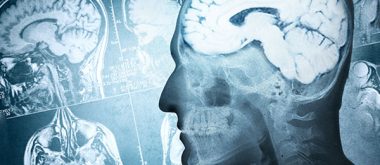Diabetes is an incredibly common health condition present in ten percent of the American population. It creates an unwanted challenge for families affected by this malicious and widespread disease. Essentially, it negatively impacts the body’s ability to react to its hormones, in turn confusing the body’s metabolism. As a result, carbohydrates are processed abnormally during digestion, which then causes indefinite spikes in blood glucose levels. In addition to dramatically increased sugar levels, numerous health deficiencies arise, caused by affected bodily hormones like the growth hormone, insulin and cortisol (to name a few).
Let’s dive deeper into what this syndrome exactly is and how it affects aging hormones.
The Several Causes
The three types of diabetes (Type I, Type II, gestational) may have different causes:
- Certain medications with harmful side effects
- Ethnicity
- Low testosterone levels in males
- Aging
- Abnormal blood pressure
- Deficient cholesterol levels
- Lack of exercise
- Obesity or overweight
- Pancreatic conditions
- Heredity
- Insulin resistance
Effect on Hormones
Insulin – Insulin is responsible for balancing the blood sugar level. Beta cells release insulin into the blood after each meal, and it then attaches to cells for sugar (energy) absorption. Diabetes prevents the proper production of insulin, resulting in a condition known as insulin resistance.
Glucagon – Glucagon is responsible for liver function, specifically production of glucose and ketones. We produce this hormone between meal times as well as during our sleep, and it is crucial for maintaining sugar and energy levels. Affected by diabetes, glucagon levels rise during a meal and then skyrocket after eating, which is opposite to the hormone’s normal function.
GLP-1 (glucagon-like peptide-1), GIP (glucose-dependent insulinotropic polypeptide) and Amylin – These incretin hormones are released from the gut and regulate insulin during a meal, increasing their secretion while decreasing glucagon secretion. The rate at which food leaves the stomach is also slowed down by these hormones, affecting the brain’s message that you are full and satisfied. Diabetic individuals experience hormonal malfunction, unsuccessfully suppressing glucagon and resulting in high blood sugar levels.
Epinephrine (adrenaline) – Epinephrine is a hormone that also regulates blood sugar levels, it is negatively affected by all types of the condition. Epinephrine assists in the breakdown of fat nutrients as they travel to the liver.
Cortisol – Cortisol is a steroid hormone that is essential for the insulin process, making muscle and fat cells resistant to it and aiding in glucose production in the liver. Being diabetic means that you must take in an increased amount of insulin to keep blood sugar levels normal.
Human Growth Hormone – Human Growth Hormone is similar to cortisol in that it counters insulin action on the muscle and fat cells. It is released from the pituitary gland.
The Symptoms in Relation to Hormones
Diabetes causes insulin resistance and leads to hormonal imbalances. A variety of conditions can occur as a result, degrading health by the lack of fuel for energy. These conditions include :
Heart disease and stroke
- Low blood glucose (hypoglycemia)
- Nerve damage (diabetic neuropathy)
- Kidney disease
- Foot problems
- Eye disease
- Gum disease and other dental issues
- Sexual and bladder problems
- Depression
- Cancer
- Dementia
- Sleep apnea
Treatment Options
Synthetic insulin is an integral part of treatment and is often accompanied by consistent physical exercise and a healthy diet plan. Also, it is important to cooperate with medical experts so that you can know which treatment plan is the best route for you.
Type 1
The treatment involves insulin administration several times throughout the day as well as during meals. Insulin pumps are also a viable option.
Type 2
On top of synthetic insulin intake, individuals with this type of diabetes must take careful precautions when it comes to diet and exercise. Certain medications are also taken to cope with the syndrome.
Gestational
This type of diabetes is treated with insulin administration via one of the following ways:
- Needle and syringe
- Pen
- Pump
- Inhaler
- Injection port
- Let injector
Other treatment options include the following:
- Bariatric surgery
- Artificial pancreas
- Pancreatic islet transplantation

 Heart disease and stroke
Heart disease and stroke



